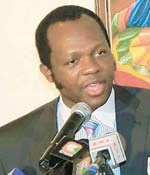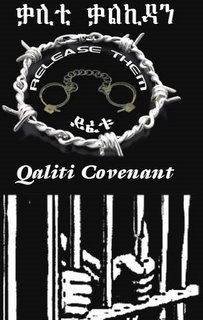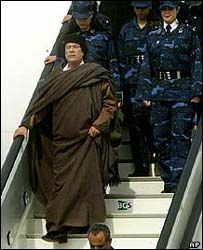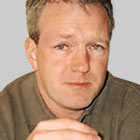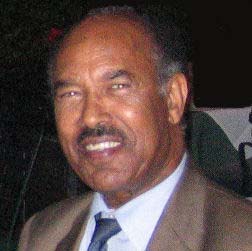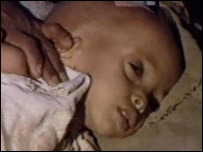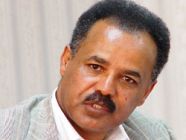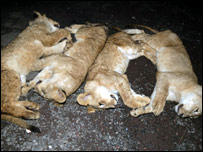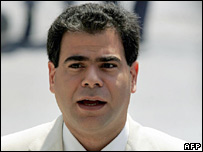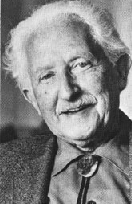International: Rwanda, Burundi join East Africa Community , Iraq Study Group Strikes A Compromise, Traces of radiation at a dozen British sites, Physicist Stephen Hawking wins Copley medal and more of today's top stories

Qaliti qalkidan Urgent Petition - Sign it!
At least 10,000 signatures needed before the Christmas holiday break
Prosecutors wrap up case against CUD leaders – verdict expected in February
(ETP) Novemeber 30, 2006 – Reminiscent of a scene right out of the movies, a witness broke down in court yesterday and admitted he was instructed by the prosecution on what to say.
The witness was accusing some of the defendants of physically assaulting him when one of the accused stood up and asked “have I really done all these things to you?” to the astonishment of courtroom attendees and the prosecutors themselves - the witness replied “You didn’t do anything to me; it was the prosecutor who told me to say so.”
The Prosecutors were caught in public with their pants down and attempted to amend their blunder - to no avail. Prosecutors argued that the witness has suffered mental problems as a result of the injuries he sustained thus he is unreliable; questioning the sanity and credibility of their own witness. Many in the courtroom were surprised by the courage of this witness in opting to tell the truth.
The embattled prosecution wrapped up its case against the democratically elected MP’s of Ethiopia; verdict is expected in mid February. The court is expected to decide on whether to dismiss the case or to proceed to hear argument from the defense.
If the court decides to hear arguments for the defense, no one is sure what will happen since most of the accused have refused to enter pleas saying the country's justice system is not independent and that the trial was politically motivated.
Ethiopia's parliament has authorised military action
311 to 90 - its official, we are going to war! Ethiopia's parliament has authorised military action in the event of an attack on the country by Somalia's Union of Islamic Courts.
Ethiopia's parliament has authorised military action in the event of an attack on the country by Somalia's Union of Islamic Courts.
On Thursday the Ethiopian parliament passed a resolution to let the government take "all necessary" steps in response to what it said were plans for an invasion by the Islamic Courts movement. Parliament approved the resolution by 311 votes to 90 against and 16 abstentions.
The resolution states that: "Parliament hereby authorises the government to take all necessary and legal steps to stave off a declaration of holy war and invasion by the Union of Islamic Courts against the country."
Meles Zenawi, prime minister of Ethiopia, said his country had already suffered attacks by groups working closely with Eritrea and the Islamic Courts forces in Somalia. (More...)
An Ethiopian military truck blown up in southern Somalia
Union of Islamic Courts claimed Thursday that their backers in Bai province, southern Somalia, have blown up an Ethiopian military pickup truck passing between Gofgadud and Manas areas on the edge of Baidoa, a seat for the transitional government.
Sheik Muktar Rbow, head of Islamic Courts security section, said pro-Islamist groups around Baidoa town had ambushed an Ethiopian convoy, destroying one pickup truck. Robow did not say the casualties. The Islamic Courts claim could not be verified, however.
Number of Ethiopian battlewagons were blown up in the past after they crossed Somalia’s southern border with Ethiopia to reach the government’s base in Baidoa where thousands of Ethiopian troops are reported lingering.(More...)
Physicist Stephen Hawking wins Copley medal LONDON - Physicist Stephen Hawking received the highest award for scientific achievement Thursday for his work in theoretical physics and cosmology.
LONDON - Physicist Stephen Hawking received the highest award for scientific achievement Thursday for his work in theoretical physics and cosmology.
The Copley medal first was awarded in 1731 by the Royal Society, Britain's elite scientific academy. Previous recipients have included Charles Darwin, Albert Einstein, Louis Pasteur and Capt. James Cook.
"This is a very distinguished medal," Hawking said in a statement. "It was awarded to Darwin, Einstein and (Francis) Crick. I am honored to be in their company."... Stephen Hawking has contributed as much as anyone since Einstein to our understanding of gravity," said the society's president, Lord Rees. "This medal is a fitting recognition of an astonishing research career spanning more than 40 years."
(More...)
Today's Top Stories
-Car bomb blast rocks Somali town-Rwanda, Burundi join East Africa Community
-Iraq Study Group Strikes A Compromise
-Talks On Palestinian Unity Government Fail
-Traces of radiation at a dozen British sites
-Kidman tops actress earning list



